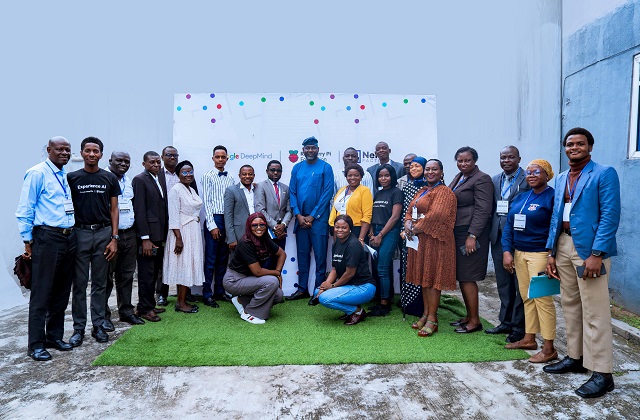The Corporate Affairs Commission (CAC) of Nigeria has introduced a transformative Artificial Intelligence (AI)-powered registration portal, announced on July 1, 2025, during the 2025 Stakeholders’ Forum in Port Harcourt, Rivers State. This initiative aims to streamline business registration processes, targeting completion within 30 minutes, a significant improvement from the current 24-hour to three-day timeframe. The portal leverages advanced AI features, including instant name reservation, National Identification Number (NIN)-based registration, and contingency solutions for verification delays. This report provides an overview of the portal’s features, objectives, potential impact, and planned enhancements, drawing on statements from CAC Registrar-General Hussaini Ishaq Magaji and various media sources.
The CAC, Nigeria’s regulatory body for business registration, has historically faced challenges with bureaucratic delays and inefficiencies in its Company Registration Portal (CRP). With over 40 million micro, small, and medium enterprises (MSMEs) in Nigeria, only a small fraction are formally registered, limiting access to government interventions and contributing to risks like fraud and money laundering. The new AI-powered portal is part of CAC’s broader digital transformation strategy to formalize 50% of Nigeria’s MSMEs, enhance compliance, and align with global best practices.
Key Features of the AI-Powered Portal
- Rapid Registration Process:
- The portal aims to complete business registration and deliver certificates of incorporation via email within 30 minutes, subject to real-time NIN verification.
- Business owners can initiate registration using only the NIN of a director or proprietor, leveraging Nigeria’s unified digital identity system that integrates biometrics and NIN for secure verification.
- Instant Name Reservation:
- The system features intelligent algorithms that suggest alternative business names and provide real-time approvals, likened to the simplicity of creating an email account. This removes traditional bottlenecks associated with manual name verification.
- Contingency for Verification Delays:
- Recognizing potential delays due to external validation by the National Identity Management Commission (NIMC), the portal includes an AI-powered photo ID matching system as a backup to ensure seamless registration.
- Enhanced Security Measures:
- A two-factor authentication (2FA) system with One-Time Password (OTP) verification will be implemented to prevent unauthorized changes to company records, ensuring only registered directors can approve modifications.
- Integration with Third-Party Platforms:
- The portal will integrate with fintech platforms such as Opay, Palmpay, and Moniepoint, allowing businesses to register directly through these systems, enhancing accessibility for MSMEs.
Additional Initiatives
- CAC Mobile Application: Scheduled for launch in the last quarter of 2025, the mobile app will enable users to track applications, manage transactions, and access company data on the go.
- Fee Review: Starting August 1, 2025, the CAC will revise service fees to sustain high-quality service delivery and support ongoing technological investments.
- Partnerships: The CAC is reviewing over 100 Super Agent applications, including international requests, and collaborating with entities like the Nigerian Inter-Bank Settlement System (NIBSS) to expand its operational reach.
- Compliance and Training: The CAC is training staff to enforce compliance, address unregistered businesses, and tackle issues like shell companies, aligning with global standards to reduce risks such as money laundering.
Impact and Significance
- Ease of Doing Business: The portal is a game-changer for Nigeria’s business environment, significantly reducing registration timelines and bureaucratic hurdles, which is expected to boost investor confidence and attract both local and foreign investment.
- MSME Formalization: With only 100,000 of a targeted 250,000 Point of Sale (PoS) operators registered, the portal aims to formalize a significant portion of Nigeria’s 40 million MSMEs, enhancing financial inclusion, tax compliance, and access to government support.
- Transparency and Efficiency: By eliminating human interference, the AI-driven system ensures transparent and efficient processes, reducing risks of fraud and enhancing trust in Nigeria’s business ecosystem.
- Social Media Sentiment: Posts on X reflect enthusiasm for the portal’s potential to revolutionize business registration, with users noting its speed and real-time approval capabilities as a “massive game changer.” However, some reported the portal being inaccessible during the transition phase, suggesting possible teething issues.
Challenges and Considerations
- NIMC Dependency: Delays in NIN verification due to NIMC responsiveness could hinder the 30-minute target, though the AI-powered photo ID matching system mitigates this risk.
- Digital Literacy and Access: While the portal enhances accessibility, Nigeria’s digital divide may limit its adoption among rural or less tech-savvy MSMEs, necessitating awareness campaigns and support.
- Fee Adjustments: The planned fee review effective August 1, 2025, may raise concerns among small businesses, requiring clear communication on cost-benefit justifications.
- System Stability: Initial inaccessibility reported on X suggests potential technical challenges during the pilot phase, which the CAC must address to ensure reliability.
Recommendations
- Public Awareness Campaigns: The CAC should launch educational initiatives to guide MSMEs, particularly in rural areas, on using the portal and understanding NIN requirements.
- Technical Support: Deploy robust technical support teams to address portal accessibility issues and ensure seamless user experiences during the pilot phase.
- Stakeholder Engagement: Continue engaging stakeholders, as seen at the 2025 Forum, to gather feedback and refine the portal’s functionality.
- Transparency on Fees: Provide detailed information on the revised fee structure to maintain trust and encourage compliance among businesses.
Conclusion
The CAC’s AI-powered registration portal, launched on July 1, 2025, marks a significant milestone in Nigeria’s digital transformation and business facilitation efforts. By enabling 30-minute business registrations, integrating with fintech platforms, and enhancing security, the portal addresses longstanding bureaucratic challenges and supports the formalization of Nigeria’s vast MSME sector. While challenges like NIMC dependency and digital access remain, the initiative’s potential to enhance transparency, efficiency, and economic growth is substantial. The upcoming mobile app and ongoing partnerships further position the CAC to align Nigeria’s business environment with global standards, fostering a more inclusive and investor-friendly ecosystem.




